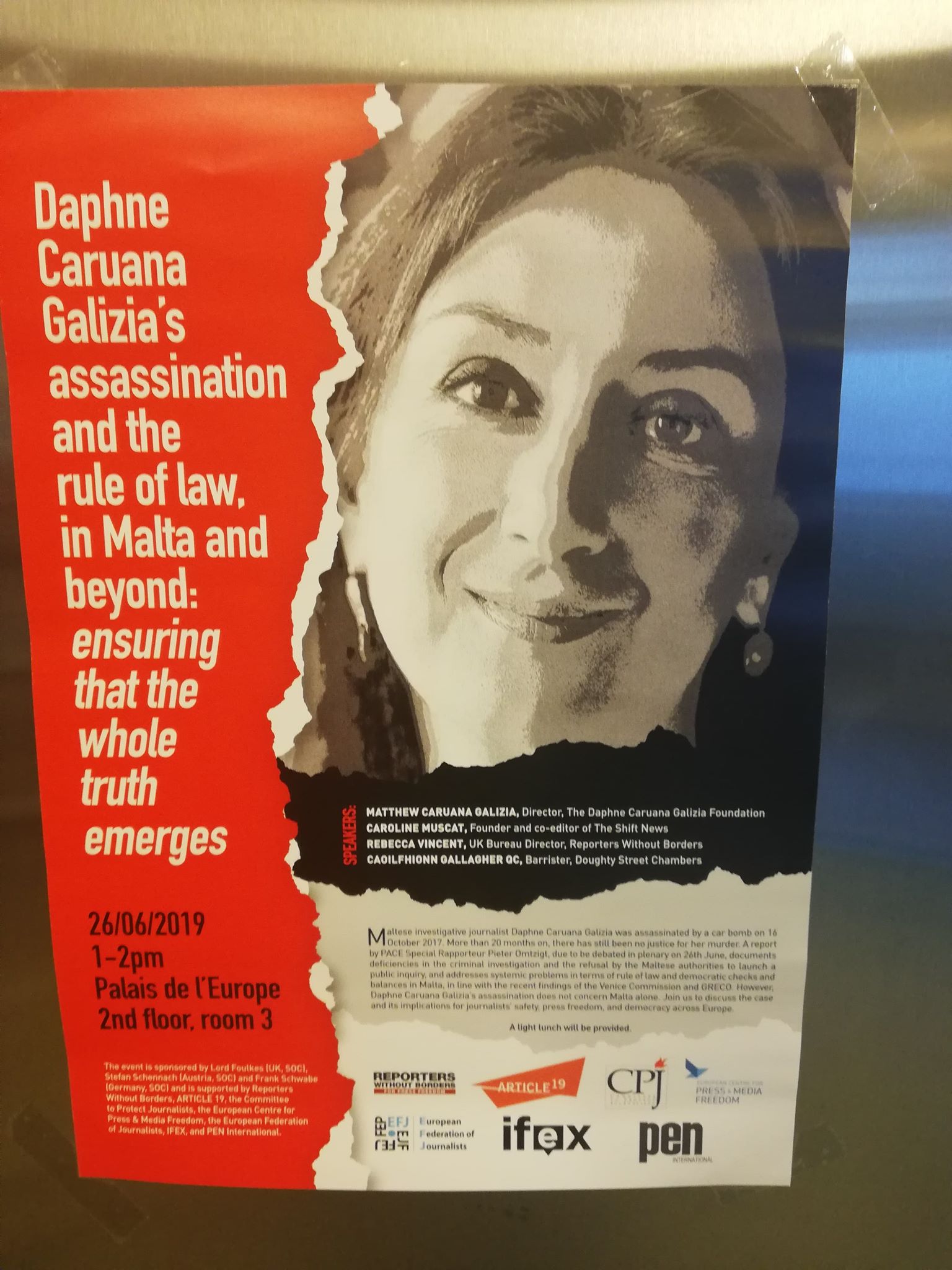Rapporteur Omtzigh, ladies and gentlemen, honorable chairperson.
In our previous session, I have already addressed the question of corruption and its pervasive effect on democracy and rule of law in this hemicycle. I want to thank Mr. Omtzigh, for his excellent, precise and honest report, which uncovers a singular yet important chain of the interplay between authoritarianism and corruption.
Daphne Caruana Galiza, a name that we should not forget in this hemicycle or in home countries or elsewhere, stood for what is right, what is ethical and what is good for common people. She dared to open the eyes of the public on corruption, and how it erodes democracy and rule of law in Malta. For that on October 16 2017, this brave woman was assassinated with a car bomb.
When we discussed the report of Mr. Van de Vart about the Azerbaijani laundromat in this hemicycle, our colleagues where quick disown that one of the key sources of the global corruption stems from Azerbaijan. The argument was that a country should not be accused of such crime, fortunately, in this report concrete names are singled out. I give you names, the President of Azerbaijan Ilham Aliyev, the daughters of Azerbaijani president, the Azerbaijani Minister of Emergency Situation, the Minister of Energy, who were affiliated with the companies with shares in the infamous Pilatus Bank mentioned in the Panama Papers. This bank was then registered in Malta for covering up illicit construction and energy deals.
Read also
I underline this, because the corruption is never about the common people. I underline this because it is exactly about the corrupt political and business elites, which will not stop on their own. They will buy influence in otherwise democratic polities, subvert them for their needs and use this or that country a springboard for sponsoring illegal enrichment.
The improvement of the democracy and rule of law in Malta is important. The full, comprehensive and transparent investigation of Daphna’s assassination is paramount. This is single case yet a milestone for determining whether we as parliamentarians are able to protect the freedom of speech and journalists at large or not.
The instruments that we have at hand, namely GRECO and MONEYVAL should be strengthened in order not to repetition of such cases. There should be concrete mechanisms for protecting the journalists, here the international NGO’s such as investigative networks, journalists sans frontier, remain our key allies.
Our struggle against the corruption should not be confined to one or two countries, it should be comprehensive, unyielding and principle in all the cases. This is the only way that we can ensure that no other car-bombs are traveling to silence journalists.






















































